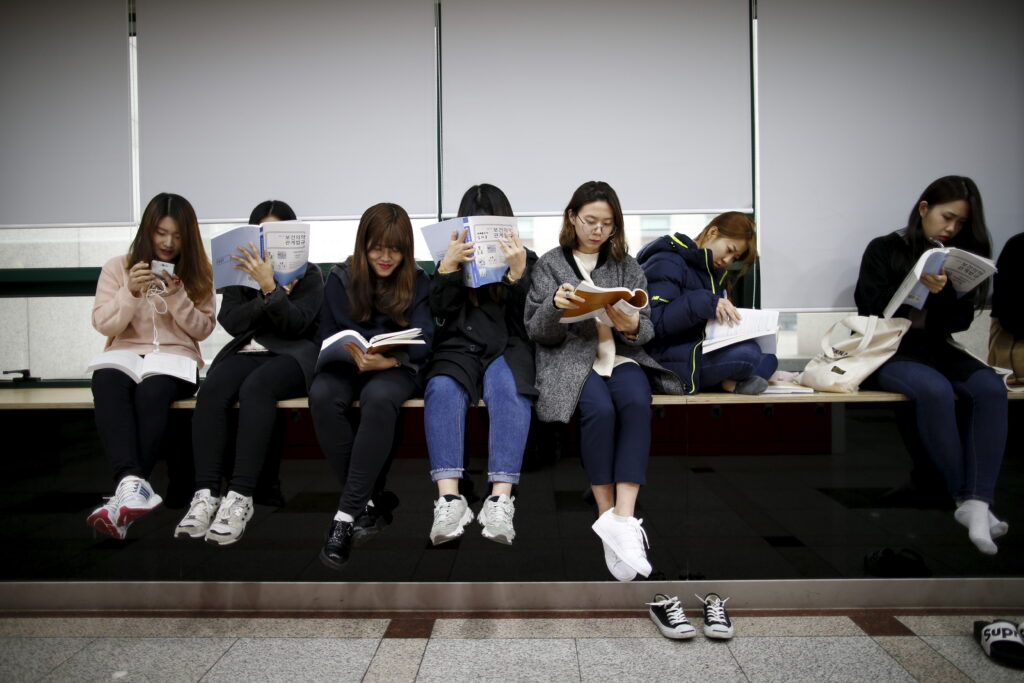In December 2023, the Ministry of Education in South Korea announced a dramatic 78 per cent decline in the number of students venturing abroad to study in China. This revelation raised more than a few eyebrows, considering South Koreans were long the largest cohort of international students in the country.
This was true until as recently as 2017, when over 73,200 South Koreans were studying in China. But the tides have shifted dramatically since then, dipping to a mere 16,968 by 2023. Several factors have caused this shift.
There has been a significant decrease in South Korea’s school-age population, which has led to a general decline in students pursuing international education. Between 2009 and 2020, the school-age population in South Korea decreased by 28 per cent, coinciding with a 49 per cent drop in the number of students studying abroad during the same period.
There has also been a shift in perception regarding the economic benefits of studying abroad. Foreign education, once seen as offering professional advantages over domestic education, no longer holds the same reverence in the South Korean labour market.
Another factor driving down the number of South Korean students heading to China is rising anti-China sentiment. This contrasts the situation in the United States, where the decline in students heading to China is more closely linked to US–China tensions and a pull-back in institutional cooperation. While the overall number of South Korean students heading abroad has dipped, the most popular destination since 2009 remains the United States — accounting for 33 per cent of South Korean international students’ destination in 2023 — followed by China and Japan.
Diplomatic conflicts, Beijing’s attempts at economic coercion and poor air quality over South Korean skies have also helped cultivate a poor image of China in the minds of many South Koreans. Adding to this, Beijing retaliated against Seoul’s 2016 decision to deploy a US-made missile defense system with boycotts and import restrictions, shutting off tourism and forcing Lotte, one of South Korea’s biggest conglomerates, to pull out of the Chinese market.
Survey research shows a 20 per cent increase in the number of South Koreans that hold a negative perception of China after 2016. This souring sentiment is reflected in the 30 per cent dip in students who studied abroad in China between 2017 and 2019, exacerbated further by the onset of the COVID-19 pandemic. Between 2020 and 2022, the number of international students from South Korea studying in China dropped by a staggering 64 per cent. This figure fell another 6 per cent during the 2022-2023 period, even after China relaxed its most severe pandemic controls.
Air pollution has pushed anti-China sentiment in recent years and helped drive South Korea to the top of a 56-country survey that measured negative perceptions toward China. South Korean media has contributed to the belief that China is responsible for South Korea’s domestic air pollution, despite conflicting research on the source of pollution. This perception has led to overall negativity towards not just China but Chinese people as well.
This escalating animosity spells trouble for South Korea’s higher education sector, which is heavily reliant on Chinese students. A hefty 40 per cent of all international students in the country hail from China. Attracting Chinese students amid population decline is not only a matter of survival for South Korean higher education institutions, it is also crucial in developing regional economies by attracting human talent.
In August 2023, the Ministry of Education announced ambitions to nearly double international student numbers from 160,000 to 300,000 by 2027. This plan underscores Seoul’s understanding of the economic advantages of attracting global talent. Still, public narratives and sentiment may not change so quickly. South Korean media continues to peddle divisive narratives painting Chinese students as imposing outsiders that drain resources.
The precipitous decline in South Korean students flocking to Chinese universities highlights enduring negative perceptions that transcend passing geopolitical events. The decline in cultural exchange brought on by decreased student mobility may exacerbate anti-China sentiments and public attitudes towards future cooperation between Seoul and Beijing.
Media sensationalism and negative public sentiment towards China may hinder the Yoon Suk Yeol administration’s plan to increase international student numbers. Future research should consider how anti-China sentiment in South Korea affects government efforts to attract Chinese students and interest among domestic students to study in China. Both countries may struggle to find a substitute for the immense value that such bilateral exchanges can bring.
Esther Song is Associate Professor at the University of Bergen and an associate at the Institute for Asian Studies at the German Institute for Global and Area Studies.


How about South Koreans studying in the Philippines and numbers of Korean schools here?